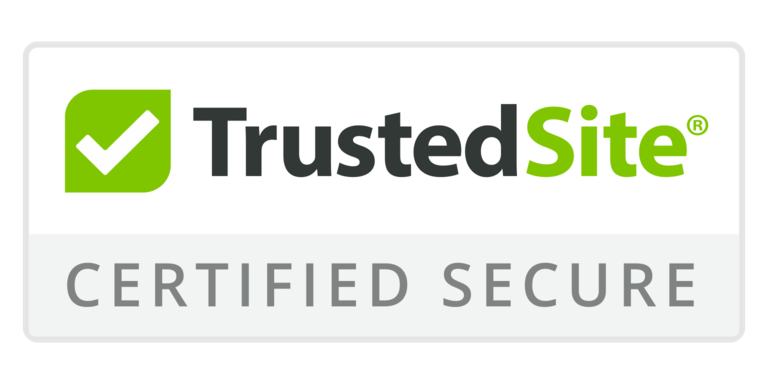
Harnessing the Power of URL Shorteners for Marketing and Sales: A Strategic Approach
In the ever-evolving landscape of digital marketing and sales, staying ahead of the curve is essential for businesses to maintain their competitive edge. One tool that has gained considerable attention in recent times is URL shorteners. While these seemingly simplistic tools are often associated with social media and convenience, they hold untapped potential to revolutionize marketing and sales strategies. In this article, we will delve into the world of URL shorteners, exploring their diverse applications and highlighting the reasons why businesses should embrace them as a cornerstone of their marketing and sales endeavors.
The Rise of URL Shorteners: A Brief Overview
URL shorteners like for example; Simple URL Shortner, Bitly, shorturl.at, Tiny URL etc. were originally designed to address the limitations posed by character constraints on platforms like Twitter, where succinctness is paramount. They serve as intermediaries between the original, lengthy URL and the final destination. By compressing the URL, these tools make it more user-friendly, shareable, and visually appealing. While their primary function remains unchanged, their utility has expanded far beyond their initial purpose.
1. Enhanced User Experience
A seamless user experience lies at the heart of successful marketing and sales strategies. URL shorteners contribute significantly to this by creating user-friendly links that are easy to remember and share. Long, convoluted URLs can be off-putting and may even deter potential customers from engaging with content. Shortened URLs, on the other hand, are concise and provide a clean, professional appearance.
Additionally, shortened URLs allow for customization, enabling businesses to incorporate relevant keywords or branding elements. For instance, instead of sharing a generic link like "www.company.com/product12345," businesses can opt for a more descriptive and engaging URL like "www.company.com/new-product-launch." This not only helps users understand the content at a glance but also establishes a connection between the link and the business's offerings.
2. Tracking and Analytics
Effective marketing and sales strategies hinge on data-driven insights. URL shorteners offer a unique advantage by providing in-depth analytics on link performance. Businesses can track the number of clicks, geographic location of users, referral sources, and even the devices used to access the link. This information is invaluable in understanding user behavior, optimizing campaigns, and tailoring content to specific demographics.
By using URL shorteners in marketing campaigns, businesses can gain real-time insights into which channels are driving the most traffic, which content is resonating with audiences, and how engagement varies over time. Armed with this knowledge, marketers can fine-tune their approach, allocate resources more effectively, and make informed decisions to maximize ROI.
3. Social Media and Virality
Social media platforms are a fertile ground for marketing and sales opportunities. URL shorteners play a pivotal role in harnessing this potential by making links more shareable and visually appealing. The compact nature of shortened URLs is especially advantageous on platforms like Twitter and Instagram, where character limits are stringent.
Furthermore, the use of branded or customized short URLs can reinforce a business's identity and create a sense of consistency across different social media channels. This not only enhances brand recognition but also fosters a cohesive online presence that resonates with followers and potential customers.
4. SEO and SEM Benefits
URL shorteners, when used strategically, can contribute to both Search Engine Optimization (SEO) and Search Engine Marketing (SEM) efforts. While the direct impact on SEO might be limited due to search engines' evolving algorithms, the potential lies in the way shortened URLs are shared and distributed.
Shortened URLs are often more visually appealing and user-friendly, which can lead to higher click-through rates and engagement. When users find a link easy to share and remember, they are more likely to share it on various platforms, increasing its visibility. This, in turn, can lead to more backlinks and mentions, which are crucial for SEO.
From a SEM perspective, the tracking and analytics capabilities of URL shorteners can play a significant role in optimizing paid campaigns. By monitoring the performance of different short links in various ads, businesses can identify which combinations yield the best results. This iterative approach allows for continuous improvement, resulting in more efficient SEM campaigns and better allocation of advertising budgets.
5. Trust and Security
In the age of digital skepticism and concerns about online security, the use of URL shorteners can help establish trust and enhance security. Long, unfamiliar URLs can appear suspicious to users, potentially deterring them from clicking. Shortened URLs, especially those from reputable sources, are often perceived as more trustworthy.
Many URL shortening services also offer features like link expiration and password protection, which can be particularly useful when sharing exclusive offers, gated content, or time-sensitive promotions. This not only adds a layer of security but also encourages users to take prompt action, boosting conversion rates.
6 .Strategic Use Cases for URL Shorteners
URL shorteners shine in targeted marketing and sales scenarios:
- Social Media Campaigns: Short links fit Twitter’s 280-character limit and Instagram’s bio, driving traffic. A 2024 report showed short links increased social clicks by 25%.
- Email Nurturing: Short, branded URLs in emails look professional and track subscriber behavior. A retailer using Simple URL Shortener saw a 20% click uplift in newsletters.
- Paid Ads: Short links in Google Ads build trust and fit character limits, improving click-through rates by 15%, per Google’s 2023 data.
- Event Promotion: Short URLs paired with QR codes at events bridge offline and online engagement, perfect for sales funnels.
7. Security Best Practices
Short URLs can hide malicious links, so use these safeguards:
- Reputable Services: Choose platforms like Simple URL Shortener with HTTPS and anti-phishing measures.
- Preview Tools: Use Unshorten.it to verify destinations.
- Clear Messaging: Label links (e.g., “Our latest campaign”) to build trust.
- Analytics Monitoring: Flag unusual click patterns to protect campaigns.
Conclusion
URL shorteners, once regarded as mere conveniences, have evolved into powerful tools with the potential to reshape marketing and sales strategies. From enhancing user experience and enabling detailed analytics to contributing to SEO and SEM efforts, the benefits of incorporating URL shorteners into digital campaigns are manifold.
By leveraging the capabilities of URL shorteners, businesses can create a more engaging online presence, foster brand recognition, and drive higher levels of user engagement. In a rapidly changing digital landscape, embracing innovative tools like URL shorteners can be the differentiating factor that propels businesses to new heights of success.
As you embark on your marketing and sales journey, consider the insights shared in this article and explore the untapped potential of URL shorteners. By embracing this strategic approach, you can harness the power of these compact links to amplify your brand, optimize your campaigns, and ultimately achieve your business objectives.
Sources:
- Google Developers. (n.d.). URLs. https://developers.google.com/search/docs
Disclaimer: This article is for informational purposes only. We at Simple URL Shortner do not endorse any specific URL shortening service, (But we are of course happy if try our URL short service) or guarantee any specific outcomes based on the use of URL shorteners in marketing and sales efforts.

